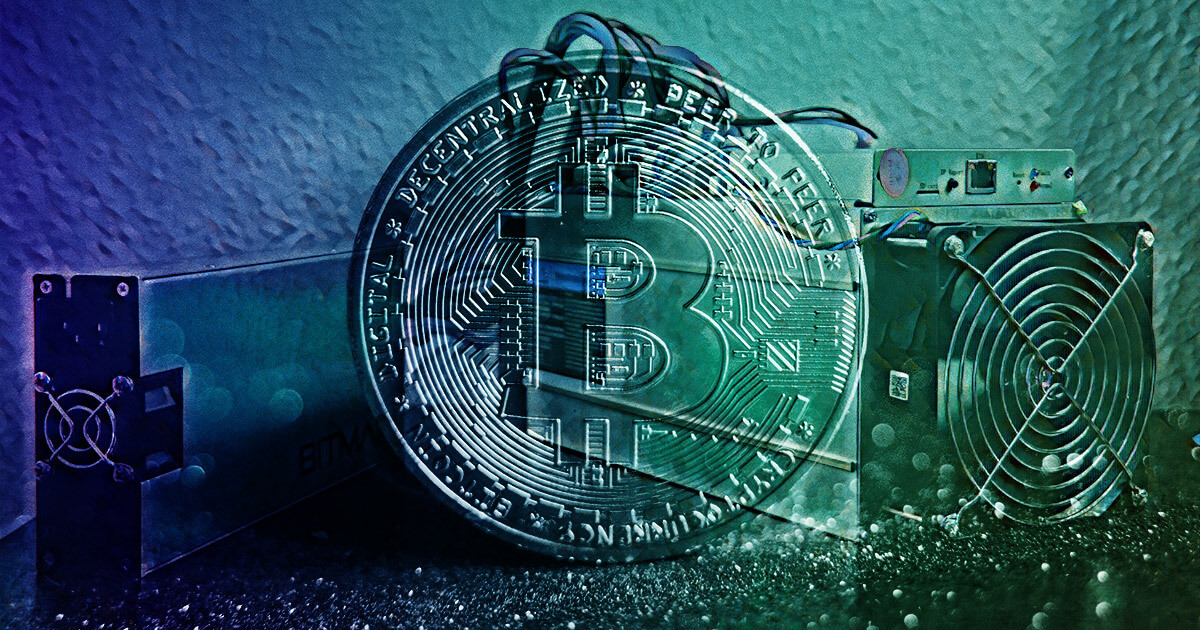If nothing extraordinary happens, the Federal Reserve will raise interest rates and implement “quantitative tightening”, that is to withdraw liquidity from the market, in its fight against the high inflation rate. The question is if Fed’s measures will be enough to push back inflation to normal levels? According to a blogpost from analysts Bitmex Research, Fed’s actions will have a significant impact, leading to temporary lower inflation rates.
“Inflation has now reached the highest levels since the early 1980s and the Fed will and must tighten liquidity conditions in response. Despite what some think, we believe this inevitable tightening of liquidity conditions will have a significant impact on consumer prices and the inflation rate will decline,” the post reads.
In the long run, though, inflation will “emerge as the final victor” and the period in between will see volatile inflationary conditions. This inflation volatility could be very difficult to navigate for investors.
Inflation is here and the Fed is forced to act.
The reason behind the historically high inflation rate may be debated till the end of time, but inflation is here and the Fed is forced to act. With mid-term elections a few months away, the Fed is likely to feel pressure from the administration. The Fed is now required to respond and will do so – it will raise interest rates, and tighten liquidity, for sure. Not to act is not an option.
“Our view is that the Fed will respond, the Fed will taper quantitative easing and raise interest rates. And yes, we do think this shift will have a significant impact on financial conditions. Inflation is therefore likely to decline in 2022, in our view,” the blog post reads.
A positive effect of inflation thanks to Fed’s actions is perhaps not a popular view among Bitcoiners, gold bugs, and others who “want” inflation, if nothing else to prove the wiseness of their positions. Rampant inflation is, however, detrimental to our societies at large, regardless if such a development would prove Bitcoiners (and other crypto folks) right, which, by the way, is highly questionable.
Peter Schiff thinks otherwise
Perhaps the most enthusiastic and prolific predictor of higher inflation in the world, investor and gold bug Peter Schiff questions the impact rate hikes to 2.5% may have on the economy and inflation.
In a recent Youtube video, Schiff says:
“The highest estimate I have seen for rate hikes is ten….. Ten rate hikes are nothing! Assuming all ten of these hikes are 25bps, after ten of them, rates will be 2.5%. Big deal! Inflation is 7.5%….. Even if the Fed raises rates to 2.5%, you have 5% negative real interest rates. You are not going to fight inflation, with 5% negative rates. There is no history that shows this, it is impossible and contradicts any type of economic school of thought. […] by the time the Fed gets rates to 2.5%, CPI will be at least 10%, maybe more!
However, Bitmex’s analysts do not agree with Schiff’s point of view.
“A 250bps hike, from 0% to 2.5% will bite, even if real yields are still negative. In addition to this, a rate increase from 0bps to 250bps is not the same thing as a rate increase from 250bps to 500bps. Investor behavior is convex. The shift from 0bps to 250bps is likely to have a far greater impact on investor asset allocation and investment flow than a hike from 250bps to 500bps.”
According to the blogpost, investors are not using real interest rates as much as they think in nominal terms. Markets are structurally intolerant to nominally higher rates, regardless of what economic theory teaches one about the inflationary impact of negative real rates.
Rising rates will drive demand for equities and crypto
“Therefore, we expect the rising rates to have a significant impact on investor demand for financial assets, namely equities and crypto. And in an environment where investor flow is king, rather than fundamentals or valuation ratios, the impact could be significant,” researchers say.
Artificially low rates have taken the economic fuel away from real, sustainable, profitable, and humble companies, and the so-called real economy has already largely disintegrated. The market is instead “left with loss-making tech startups, master of the universe VC funds, meme stocks, CryptoPunks and a Metaverse real estate bonanza.”
This represents an extreme level of financialization in the economy. These highly financialised sectors and any businesses depending on them could be hit hard by tightening financial conditions.
“The interrelationship between these sectors and the political economy is stronger than many analysts predict. This is what we have left and these areas are extremely sensitive to financial flows and liquidity conditions. The tightening will have an impact and we predict it will result in a lower official inflation rate for consumers,” the blog post reads.
Businesses and even the government itself will suffer
This impact will, of course, make many businesses struggle; it may even put hardships on the federal economy itself as servicing debt is already 25% of the federal budget. Higher interest rates will not make this situation better.
According to the analysts, this will result in a swing in the other direction leading to higher inflation in the long run.
“The authorities will react to the economic downturn and we will eventually correct course back to the inflationary regime. However, this may not be as straightforward as some expect. After raising rates they may be reluctant to simply lower them again this time. A widespread loosening of monetary conditions could be less politically palatable. Instead, the response could be a more targeted and coordinated monetary and fiscal stimulus.”
Should you just sit this out? No!
Should investors just sit it out, holding on to their portfolio of bitcoin, ether, gold, gold miners, and index-linked bonds, after all, they will win in the end, right? There will only be one winner at the end of this, inflation. The analysts are not so sure.
“At this point, however, this is not an investment strategy we would recommend. This game could take five or ten years to play out. In the intervening period inflation is likely to be volatile. This means the CPI is likely to decline in some periods. Very few investors will have the patience and resilience to stick to this thesis as inflation declines,” analysts say.
“Trying to be tactical and time markets is widely regarded as a fool’s errand. This is now the prevailing narrative, with passive funds and automated algorithmic strategies leaving active fund managers and stock pickers in the dust. It is time to turn off the machines and sell the index trackers, you will have no choice,” Bitmex analysts conclude.


















